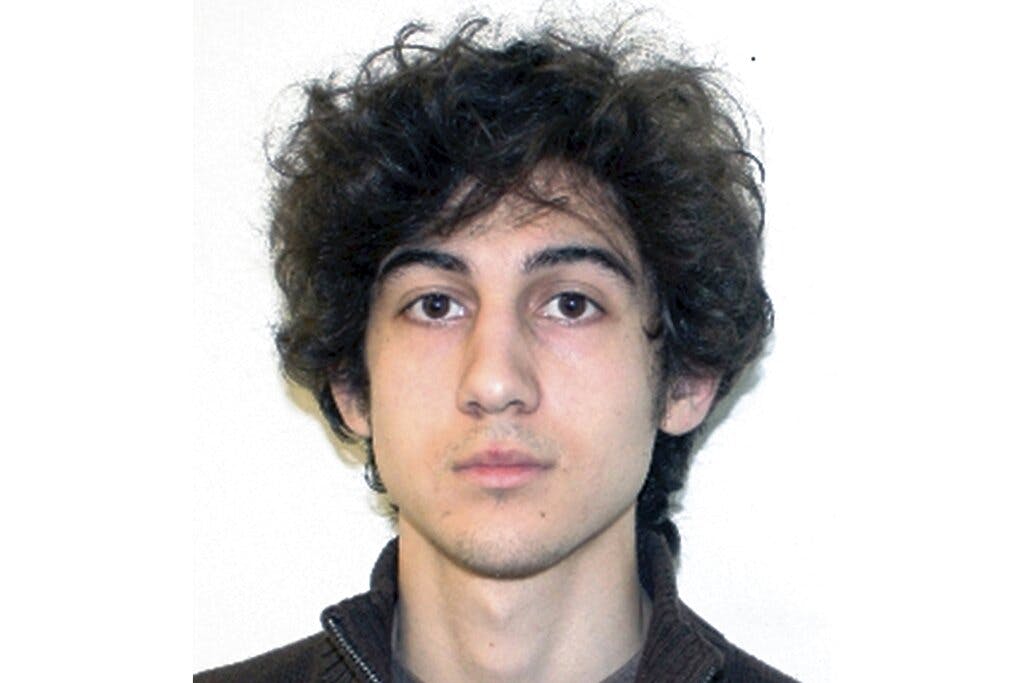Will Biden Bow to the Supreme Court on the Boston Marathon Bomber?
The Justice Department halted federal executions last year, and the president has said he opposes the death penalty.

The Supreme Court’s decision Friday to reinstate the death sentence for the Boston Marathon bomber Dzhokhar Tsarnaev certainly puts President Biden on the spot. Is he now prepared to faithfully execute the law that, in theory, dooms one of the most nihilistic killers of our time? We ask because the Justice Department halted federal executions last year, and Mr. Biden, according to the AP, has said he opposes the death penalty.
The president has been following what the American Bar Association calls a “disjointed” path on the death penalty. As a candidate, Mr. Biden pledged to “eliminate,” via legislation, “the death penalty at the federal level,” and “incentivize states” to follow suit. That hasn’t happened, a failure that one voice on the left, Ashley Kincaid Eve, has called “unconscionable.” She told the AP it was a case of “political cowardice.”
Without ending executions, the administration imposed a moratorium on them in July. That followed remarks by Attorney General Garland in June saying he was “personally” looking over death penalty policies amid a number of “concerns” — especially its “disparate impact” on blacks. The pause came after one one death row inmate, Rejon Taylor, told the Associated Press that death row inmates “don’t believe they’ll be executed while Biden is president.”
Mr. Garland, in a memo in July, sought to justify the moratorium on executions by suggesting there has been an “arbitrariness in its application” and citing a “disparate impact on people of color.” By the end of the year, Mr. Garland’s review had led to the withdrawal of the death penalty in a dozen cases. One featured a white Texas man convicted of killing in 2013 a black postal worker — a grandmother — and then burning her remains.
While Mr. Biden has lately kept quiet on the death penalty, his press secretary, Jennifer Psaki, has cut a meandering furrow on this matter. In July, she said the president “wanted to see an end to executions.” Yet asked in January about the murder of a “police detective who was part of an FBI task force” and whether Mr. Biden would intervene if the accused faced the death penalty, she hedged, citing Justice’s “discretion.”
The Supreme Court, by reimposing a sentence of doom on Tsarnaev, now forces Messrs. Biden and Garland to make a decision. Asked on Friday about how the sentence in the Boston Marathon bombing case related to “Mr. Biden’s pledge to end the death penalty,” Ms. Psaki first noted Mr. Biden’s “deep concerns” and asserted that the president “certainly supports the Attorney General’s decision to issue a moratorium on federal executions.”
After that, Ms. Psaki sputtered, as captured in the White House’s transcript: “Obviously, I can’t — there’s — this is a case that the Department of Justice could certainly speak to, but I could — would just say that President — the President expressed horror at the events of the Boston Marathon bambing [sic] — bombing at the time.” She conceded Mr. Biden felt “Tsarnaev should be punished for responsibility” for his role in the crime.
What exactly that punishment should be is now the point of contention, especially since President Biden’s own Justice Department had asked the Supreme Court to execute Tsarnaev. On Friday Ms. Psaki appeared to have been inadequately briefed. She repeated herself, noting Mr. Biden’s “grave concerns about capital punishment” and his respect for “the process and the ongoing review that is being — being led by the Department of Justice.”
Translated into plain English, that means, “never mind the Supreme Court.” It also echoes the broader incoherence of anti-death penalty arguments. Claims that such sentences are unconstitutional, to take one example, are easily refuted by the observation that “capital” crimes are explicitly referenced in the parchment itself, in the Fifth Amendment. That sets the Eighth Amendment’s ban on “cruel and unusual punishments” in its proper context.
If Mr. Biden hoped the Supreme Court would help extricate him from his long career of virtue signaling, Friday’s ruling offered no such hope. Justice Clarence Thomas observed that Tsarnaev “committed heinous crimes.” His victims were aged 23, 29, and, poignantly, 8. Yet the Constitution “guaranteed him a fair trial before an impartial jury.” Added Justice Thomas: “He received one.” Now, the victims’ families wait for the faithful execution of a sentence that the court has determined is in compliance with the Constitution to which Mr. Biden is sworn.

